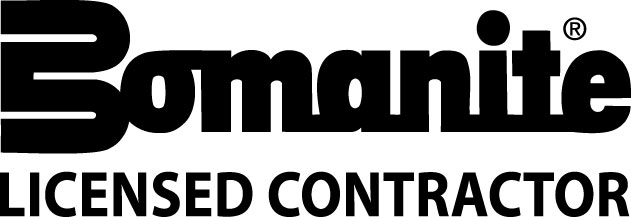What is Stamped Concrete?
Concrete is not just the drab, gray industrial material you often think of.
Concrete can be colored, stained, stamped, textured, shaped and cut to offer remarkable aesthetic
qualities along with the durability of this building material.
How is decorative concrete used in today's
home?
By applying these different treatments the skilled contractors can replicate the
shape, texture and colors of natural materials and create functional and beautiful patios, driveways, entrance areas, and pool
decks for exterior applications. These and other techniques can be
used for interior floors as well. Decorative concrete can be used in new construction as well as
remodeling projects. Creative designs can be achieved using special re-topping systems and coloring
techniques.
What companies do this kind of
work?
There are several contractors that do this work. It is important to work with
contractors that specialize in decorative concrete. This kind of work requires experienced and well trained
masons that do this work on a full time basis. One such company that does this is North Jersey
Bomanite. North Jersey Bomanite is part of the national network of licensed Bomanite contractors
and focuses exclusively on the residential market in northern New Jersey. They are affiliated with
Beyond Concrete which does both residential and commercial work throughout other parts of the state
and the metro New York City area. Bomanite is the best recognized name in the field of decorative
concrete having been the inventor of stamped concrete over 40 years ago.
What accounts for the growth
of decorative concrete in recent years?
The recognition of the value of curb appeal and the use of various materials by the
architect and builder has resulted in the expanded use of decorative concrete in residential
applications. In the past there has been greater use in commercial and institutional applications
but it is now being used much more in the residential market. The internet and various home shows
on TV have made these products much better known to the public. These techniques also provide far
greater creative alternatives for architects and designers than ever before. The long term
durability and the increased emphasis on low (or no) maintenance is a need expressed by most home
owners today. Also, there have been many advances made in products being developed for coloring and
protective sealers.
What are some of the newer
applications that you see?
In addition to the various applications cited above, we see growing interest in
interior work as well as in re-surfacing older installations both exterior and interior. There is a
growing interest by interior designers to create unique flooring designs using colors and graphic
designs. Used more frequently in commercial work we see greater interest by the home owner.
Basement areas are being refurbished for home offices as well as family areas and the old basement
slab can be made to be quite attractive. Sunrooms and conservatories and the combination with
radiant heating are an ideal use. Landscape architects and contractors also have greatly expanded
the use of decorative concrete in their hardscape projects.
Is it
slippery?
No! We finish all of our jobs with a sealer that has a slip resistant additive
mixed in.
|
What are the basic economics of these
products?
On the whole we have to be careful to make the proper
comparison with alternative materials. Taking a driveway as a specific example: Certainly when
comparing the cost with asphalt for a driveway the stamped concrete is considerably more expensive
from a first cost point of view. The lower long term maintenance and life and the aesthetic look is
much better. When comparing with paving stones, decorative concrete can be slightly greater or
equivalent depending on the size, shape and site considerations. Of course the lack of vegetation
control, settling and annual maintenance makes stamped concrete a definite advantage. When compared
to natural stone the stamped concrete is considerably less expensive. Similar comparisons must be
made for each specific application.
How can you learn more
about decorative concrete?
The internet is a valuable place for information and guidance on these systems and
uses. Trade magazines such as Builder and Architect Magazine and other are helpful as well.
Contacting contractors such as North Jersey Bomanite is a direct way to learn more how this can be
used for your projects. We will work with you at early stages of your design cycle and give you
some ideas. If already incorporated in the plans we, like other focused contractors will work with
you to create budget information as well as to provide firm quotation for the work whether to the
builder, architect, or the owner when presented as an optional material to be considered in the
project.
Does the concrete
crack?
Concrete does crack. However, your concrete will be saw cut to control any
cracking. Occasionally, some small cracking outside the control cuts may occur. This is normal and
will not affect the integrity of your concrete.
How does Bomanite hold up in
our climate?
Concrete holds up very well in our local climate. There is extensive good
experience in using Bomanite Stamped concrete systems in cold climates and has been used
successfully throughout the northeast and similar climates in the United States and
internationally. One caution is to not use Rock Salt as an ice-melter. There are other readily
available melters that can be used.
|


